Have you switched from traditional HVAC to Geothermal HVAC?
I am looking to switch out my HVAC that is on its last legs and out of warranty. I want to reduce my energy costs and upgrade my have in a more sustainable way.
i am wondering if anyone has made this switch, what “gotchas” I should consider and how the system performs, especially in quite extreme climates (we are in Austin, Texas)
many thanks!!
Comments (19)
Adam Mincham
Original Author3 years ago2800sqft is home And 7500sqft lot. We have central air now. I would prefer horizontal but have no idea how much Space is needed/presume available space on our lot is too limiting and would likely force vertical.
0Related Professionals
Fort Lauderdale Home Automation & Home Media · Glenview Home Automation & Home Media · Goldenrod Home Automation & Home Media · Potomac Home Automation & Home Media · Benicia Solar Energy Systems · Dana Point Solar Energy Systems · Muscatine Solar Energy Systems · Inver Grove Heights Solar Energy Systems · Bronx Roofing & Gutters · Joliet Roofing & Gutters · Hillcrest Heights Roofing & Gutters · West Orange Roofing & Gutters · Wentzville Kitchen & Bathroom Designers · Woodlawn Kitchen & Bathroom Designers · Adelphi Kitchen & Bathroom Remodelers- 3 years agolast modified: 3 years ago
Nice, balanced comment fsq.
Adam, if environmental friendliness is a high priority, be prepared to pay quite a bit extra to get it. And to not recover the up front cost with operating savings. Perhaps a cheaper alternative for you to also consider would be getting air source heat pumps (equipment wise, the external equipment looks the same as standard AC) and install solar panels on your roof. Keep or add a gas furnace for backup for cold weather.
- 3 years ago
We are in a heating dominated area, but I think some aspects are the same. I was told a rule of thumb is one horizontal trench 100ft. long per ton. The volume of air coming through ductwork and registers is larger. You don't set back your thermostat as much as it takes longer to change temperature. Some people do not set back thermostats at all.
- 3 years ago
You’ll get a 26% tax credit on your 2021 Federal taxes so factor that into your system cost.
- 3 years ago
Electric rate increase is the “gotcha” I worried about when we put our system in 10 years ago. Our utility has a reduced rate for electric heat usage (separate meter), but there’s no guarantee that won’t go away sometime.
The geo system lives a little differently than the LP furnace and traditional AC unit it replaced. We don’t vary the thermostat setting during the day as it’s a slower response system. The air is a little cooler at the ducts in the winter, but the longer run times help keep the room temps more even. The air also doesn’t get as crackling dry as with the LP furnace.
We have a desuperheater tank to convert waste heat into domestic hot water heating. Our lowest bill to date was during the hottest month. - 3 years ago
what gotchyas? Geo vs. traditional forced air ducted HVAC.
$$$, room to install the ground loop, leaks and $$$.
In most instances the pay back will probably take the rest of your life if everything goes well. Current electric rates before the black out were around 10 cent per KWH in Texas. I recently got a short term 6 month rate around 6.5 cents or so in January. Probably won't be that good now after the black out and finger pointing here in Texas.
7500 sq foot lot I think would be a tight fit for a ground loop. I don't do this kind of work, but I would think you would need at least an acre? Maybe fsq4cw can comment on that.
The biggest gotchya is $$$ and if you do this it probably won't do much for house appreciation either. It might help you sell the house or it could prevent you from selling the house because?
If it leaks think of all that money again... (when I say leak, I am talking about the ground loop, not freon leaks in equipment.)
If this house was on acreage... larger like 5,000 or larger sq ft. house. I think the conversation would be completely different. Because it puts you in a different category of the RE market. What you have is more the average run of the mill house. I think the odds are stacked against you to do this.
I would say look at traditional forced air HVAC inverters. The AC compressors in these are multiple speeds, does much better dehumidification, can cut your light bill in half. Much less cost than geo, without the loop running in the yard.
If you go with major HVAC brand names and inverters, the con with those is primarily proprietary controls. There are other options so you have to do some home work.
I service the Katy, Texas area. - 3 years ago
So far there’s nothing posted in this thread that’s hard to disagree with. It’s all basically valid advice. But we still need put some meat o the bones.
Re: Elmer J Fudd
Could be all true, I don’t live in Texas. It comes down to personal philosophy and choices we make in life. Not everything is about money.When’s the payback on a Tesla? People still choose to buy them for reasons other than the ‘bottom line’.
Personally for myself I would not choose natural gas or propane for reasons relating to the environment, safety, IAQ & paying for yet another utility hookup for an energy source that might not even be used for months on end during the year.
EJF - This is not a personal attack so please don’t take it that way.I often hear about Solar Panels when geothermal is mentioned, as an alternative way to save money by creating energy.
Again, I’m speaking for myself. Rather than spending perhaps tens of thousands of dollars on a Solar Array, I would sooner invest that same money, hopefully less, in a ground loop for a Geothermal system.
Why? Geothermal too is a form of Solar Energy. The Sun heats the earth; we extract that energy or reject into it and with it we cool, dehumidify and heat our homes & DHW at a rate that can be up to ⅕th the cost of resistance electricity alone. It’s a far less complicated system, it’s not subjected environmental damage such as wind, hail, etc and unlike virtually any other form of Solar Energy, Geothermal works when the Sun doesn’t shine & the Wind doesn’t blow! Unlike PV Solar, energy storage is already ‘Built In’ - It’s call The Planet Earth. It’s never going to require servicing.
Everybody makes their own choices based on what’s best for them.
Re: Seabornman
There is no ‘Rule of Thumb’ only mathematical formulae to be followed that would determine the length of a horizontal trench. It is based on linear feet required and configuration.
The volume of air supplied by duct work is determined by its size and is the same regardless of what energy source a Heat Pump uses, Air-Source or Ground Source. The same is true for temperature. Air temperature supplied will essential be the same regardless of source for heating and cooling if talking about a heat pump. Only a Fossil Fuel or Electric Resistance source is capable of suppling a substantially higher air temperature, which is why older homes build before the advent of the modern heat pump have smaller ducts that are not well suited to modern HP heating or AC. Smaller ducts delivering higher temperatures at lower volumes can deliver the same Btu as a HP that must use larger ducts to deliver higher volumes due to lower temperature, to be equivalent to their fossil fuel or all electric cousins.
You are right (IMO) regarding set backs. We almost never use setbacks at our home - even when going on vacation for weeks on end with no one home, our geothermal just runs. I personally do not believe in setbacks with any kind of HP - particularly for severe weather, that is our case. Others might feel differently and that’s fine. ‘Everyone does what’s best for them’.
Re: sandk
There is no Electric rate ‘gotcha’. Comparatively you’ll always be doing better with a HP - any HP as long as it can be run up to ‘Design Conditions’ and not beyond! Longer run time do help keep room temperatures more stable and don’t seem to dry out the air as much, as higher temperature sources of heat, as you have mentioned.
A desuperheater is a great way to increase the value of a geothermal installation by at least preheating DHW. Depending on the type and configuration of a geothermal heat pump, you can also produce all your DHW at a greatly reduced price.
Re: Austin Air Companie & sandk
Again regarding trench length for horizontal ground loops, that is dependant on what you install and how. Furthermore, the trench does not have to be straight. It can be ‘L’ shape and be on 2 or more sides of your home. The total length of pipe can be 1-long run but buried at different depths within the same trench separated by as little as 1-foot of earth vertically. This would shorten the total length of trench. Beware - this technique has risks! The risks are to the installers working on the project. The deeper the trench the greater the risk of wall collapse and death. The slope of the trench wall must be of a gentler angle or the walls have to be supported to prevent collapse or cave in. Consult with Geothermal Professionals, State & Local Officials!
Another method of horizontal loop installation the ‘Slinky’ where the loops are configured just like a Slinky that is spread out horizontally. Trench length can be greatly shortened with this method - particularly with greater loop overlap, shorter ‘On-Centre’ loop distancing.
Both linear pipe installation and Slinky can also be installed vertically by digging a narrow trench with a ‘Chain Trencher’ that is like a giant Chain Saw. Again this is something that requires professional expertise. Imagine the installation of the vertical Slinky that is a series of many vertical loops. There can easily be - and there will likely be trapped air at the top of some, most or all these vertical loops that might be spread out over hundreds of feet. You might need to rent a Fire Truck to purge, flush and pump out all the air and debris from this type of configuration!
As I have already gone on way to long, the last thing to mention regarding ground loops, deep, shallow, horizontal or vertical - is to not install them where you or a subsequent owner of your property might want to install an in-ground swimming pool at a future date!
IMPO
SR - 3 years agolast modified: 3 years ago
I'm disappointed that what had at first seemed a very balanced comment was followed by what seems to be misinformation and misdirection.
People buy ground source heat pump equipment because they want to and can afford it. Or decide they need to in their locations. They're hugely more expensive than alternatives, which is why they're still not very common.
"When’s the payback on a Tesla? People still choose to buy them for reasons other than the ‘bottom line’."
Not a comparable. A false analogy.
"I would not choose natural gas or propane for reasons relating to the environment, safety, IAQ & paying for yet another utility hookup for an energy source that might not even be used for months on end during the year."
What effect having a gas furnace has on indoor air quality. Another hookup? Most people prefer gas cooking appliances and besides, the OP is talking about an existing home, he either has gas service or he doesn't.
"Rather than spending perhaps tens of thousands of dollars on a Solar Array, I would sooner invest that same money, hopefully less, in a ground loop for a Geothermal system."
Sure you would, that's the business you're in. The ground source heat pump market is not growing as expected by those in the industry, which suggests that your opinion isn't widely held or easily sellable. In many parts of the country, solar panels can have a quick payback. Not so ground source heat pumps.
"I often hear about Solar Panels when geothermal is mentioned, as an alternative way to save money by creating energy."
In a place like Texas, where electricity is cheap (other than during cold weather crises as they just experienced) there's likely no payback from a solar panel installation. People do it as a personal statement, call it for environmental or other personal reasons. Like buying the Tesla, not a financial decision.
An HVAC system blows warm air when it's cold, cool air when it's hot. It's one of those things people don't care about - either it works or it doesn't work. Spending extra money for an exotic system doesn't equate to extra payback when the home is sold. Neither owners, nor visitors, nor people passing by, nor anyone else, concern themselves with what's doing the work. It's equipment that doesn't produce an experience for someone in the house if it's working.
In the US, there are vast areas where electricity is cheap. It will remain so for some time. People don't spend money today to potentially save money 10 years out when market conditions may or may be different.
I suspect you could build a house with mahogany or teak framing. Or you could paint the framing bright colors. Why bother, you can spend less money and effort and get something else that will do the same job.
"We almost never use setbacks at our home - even when going on vacation for weeks on end with no one home, our geothermal just runs."
You're combining two different things to produce confusion. Thermostats that have a setback feature ALL are set up to provide lower overnight temperatures to have more comfortable sleeping conditions and then a recovery in the morning before wakeup time. As sleep specialists recommend. That in demand comfort features isn't possible with ground source heat pumps because the warm up period from a setback is too slow to be convenient to use, absent triggering a secondary heating source (like a furnace) to help. THAT'S why you don't "believe" in setbacks with a heat pump - they don't work.
Turning down a thermostat during heating season when the home will be unoccupied is not a "setback" as that word is most commonly used. It's done to save money, why heat a vacant house? No setback thermostat is needed, even a dumb 50 year old analog thermostat can be turned down.
0 - 3 years ago
I didn't know I was lowering temperature at night in our city house for cooler sleeping. I thought it was to save money. Foolish me. I have already had solar pv system and ground source heat pump (aka geothermal) pay back at our country house. Zero dollars in maintenance. It helps to have a good installer.
0 - 3 years ago
Not foolish you but perhaps uninformed you. I've been under the care of a sleep specialty doctor, very successfully I should add, for >20 years. Leaving the first visit, I was sent home with a checklist of do's and don'ts of what they call "sleep hygiene". Prominent on that list was, lower the temperature of the room you sleep in. Not doing so can disturb your sleep. If you sleep well, lucky you, about half the population doesn't.
0 - 3 years ago
The Geoexchange forum can tell you more than you'll ever want to know about geo from owners of the systems and installers. https://www.geoexchange.org/forum/
I prefer using less over producing the same amount cheaper to achieve my needs and spent my money on passive. My energy usage is half the average per my utility companies comparison reports than houses in my area, and with no special equipment. But to each their own and do as you please.
But what about your water problem? Lake Austin built in the early 40's along with lady bird and long in the 60's may not support a 900% population increase during a drought. Be aware, the Colorado river which originates in west Texas which fills your reservoirs may dry up this soon, as this severe drought increases to the west of you. https://droughtmonitor.unl.edu/
And if they start sucking water out of the Texas uplift aquifer to meet your area's needs the ground may drop like the central valley of California, "We're just pumping too much groundwater, especially in the agricultural areas in the Central Valley," Farr says.
The ground is sinking one to two feet a year. Your best option is to sell now when prices are good and move to North Dakota. But the good prices won't last past this summer when the mother of all depressions will hit America , with asset values crashing by 50% to 75%, so wait it out in North Dakota, in a $50K house and cash in the bank, Cash is king when deflation hits you know. Jobs? Another story.
0 - 3 years ago
Re: Elmer J Fudd
Here we go again - My favourite (spelt like a ‘Foreigner’) Troll!
You offer nothing but opinion based on your feelings, no facts, no knowledge - no new technical content - nothing of any real value, in fact nothing of any value!
What has any reader learned that’s new technical information from your post?
My posts are for the OP and anyone anywhere (US & ‘Foreigners’). The technical content is fact based, which is probably why other posters - even other professional posters invite me to comment.
But ‘Elmer J Fudd’, I think you’ve finally inadvertently just revealed your essential self - You’re a Sleep Deprived ‘Looney Tune’!
IMPO
SR0 - 3 years agolast modified: 3 years ago
No need for a personal insult. Defend your less than honest puffing with facts. You never do. You lash out and call names when you're asked to defend your wild and fact-light generalizations. It doesn't work.
You're the one who's up after midnight your time so maybe it's another aspect of your jealousy? Or disingenuous misdirection?
I sleep like a baby, thanks for your concern. Feel free to offer answers to my questions or corrections if what I said is wrong. If you can.
0 - 3 years ago
People buy ground source heat pump equipment because they want to and can afford it. Or decide they need to in their locations. They're hugely more expensive than alternatives, which is why they're still not very common.
"When’s the payback on a Tesla? People still choose to buy them for reasons other than the ‘bottom line’."
Not a comparable. A false analogy.
How do you know why people buy something or not? What do you sell?
Typically it's a product that solves a problem when it comes to HVAC. Tax credits can also have a good sway to help someone decide. So you have all this money burning a hole in your pocket?
You call up a geo contractor, that geo contractor nearly falls out of his chair that the phone rang... (probably not, or maybe I don't know I'm not a geo contractor)
The thing is that geo contractor likely has a crew of people helping him. Those people work paycheck to paycheck. He's got all this earth moving equipment to pay off, sky head over head that unless this guy was smart he may have a 3rd mortgage on his primary home? Those bills keep coming... the work for this 'kind of thing' does not... unless he's working with a home builder getting new free leads all the time. Name how many times things go wrong on a new home build on this forum board?
It's similar to buying a solar array. You expect a payoff. Because that's how these things are sold. They only tell you the good... never the bad. That's what forum boards are for.
If solar installers told you hey this is green stuff (made from all kinds of chemicals and stuff that is bad) but it is going to make your utility bill go up. C'mon Man? This is earth, no one thinks like that.
Does this mean geo is all bad should never be used?
NO! That is not what I am saying. There are risks when you drive down the street. Then someone tells you to use a good contractor... in a world in which people lie like the driven rain. Good luck if you think a contractor that has bills to pay, a crew to pay, substantial overhead costs... he is in that business to sell, sell, sell. He has to.
You can DIY geo... so you dig up the yard on your own, hit a utility line or who knows what? Maybe you kill yourself. No biggie people get killed driving down the street. Or you dig a trench and while working in that trench it collapses and buries you. Tombstone reads: He saved $30K trying to do it himself.
So you know there are consequences for you no matter what you decide to do. Trouble, Trouble, Trouble. We knew it was trouble the minute this thread was born... it was spelt out early. - 3 years ago
Now the guy in this video impresses me, Just a simple geothermal system and getting the results he did is amazing. No engineers, high buck equipment or drilling down 200 feet.
0
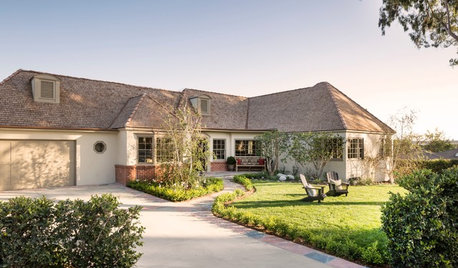


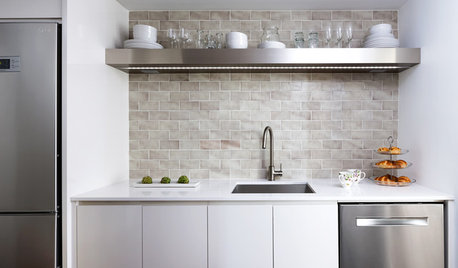
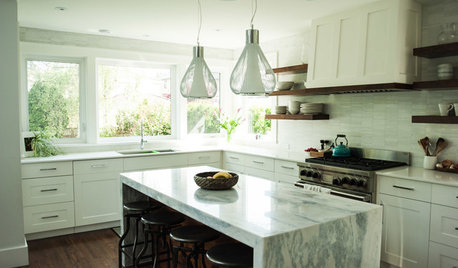
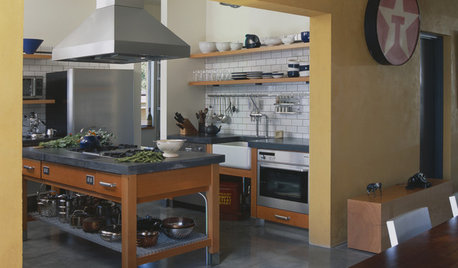
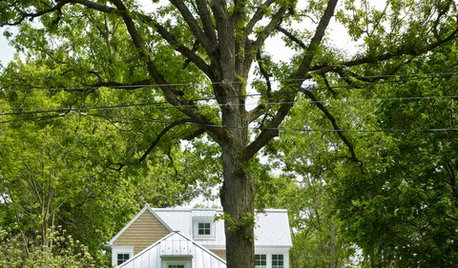

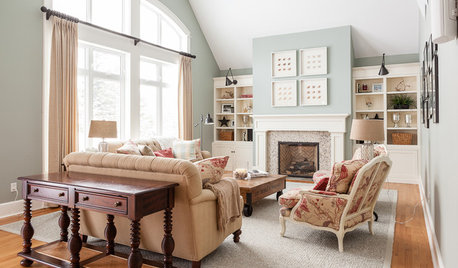
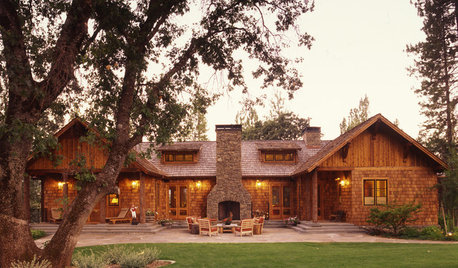



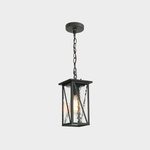



fsq4cw